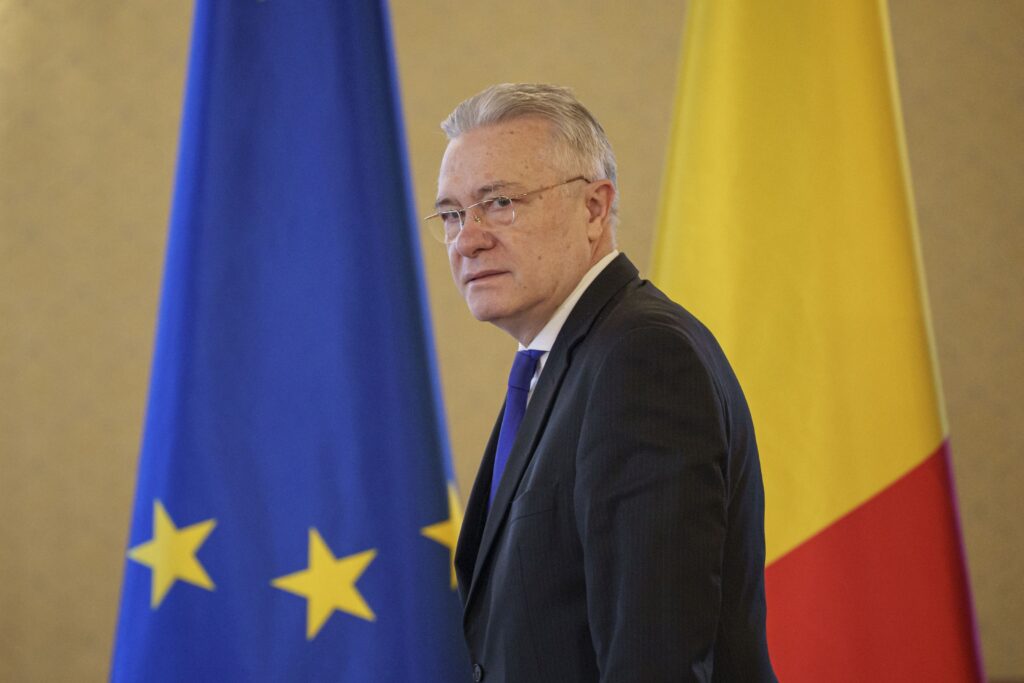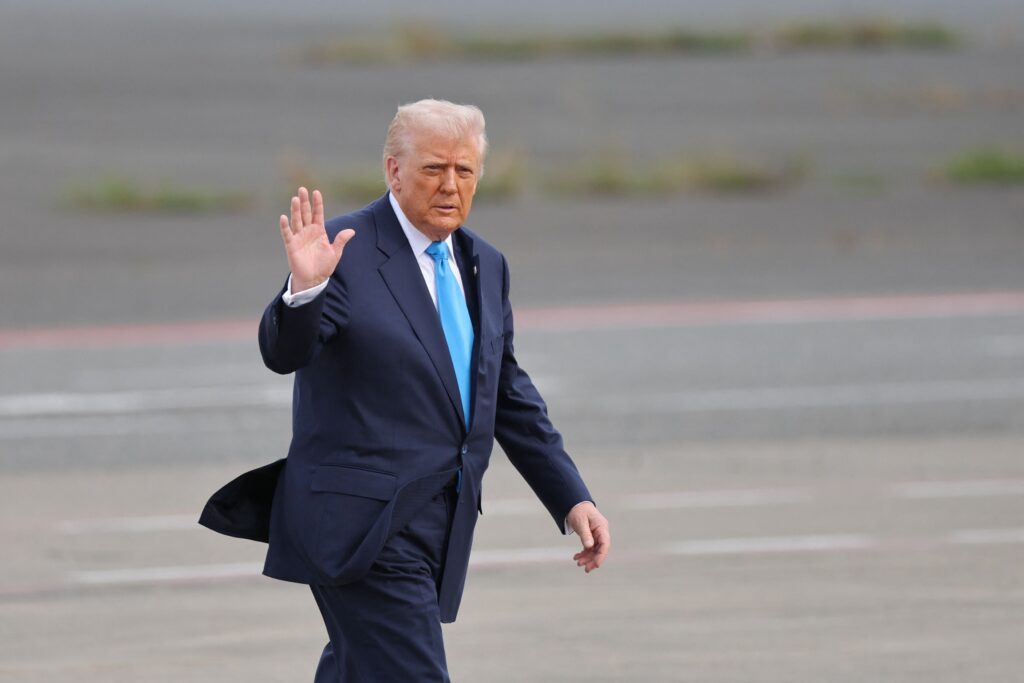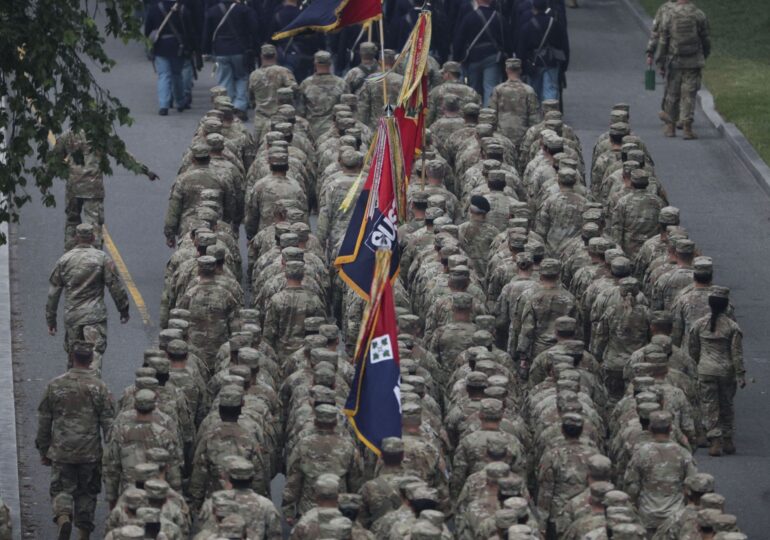The announcement that the United States will withdraw a brigade, around 2,000 troops, from Eastern Europe, more precisely Romania, Hungary, and Slovakia, has caused chills, disappointment, and tension among authorities in Bucharest.
Specifically, 800 American soldiers will leave our country following a strategic decision by the US administration, which announced from the beginning of Donald Trump’s term a repositioning of troops to bolster military efforts in the Pacific, where China is expanding its influence.
Rightfully so, the reduction in the number of American soldiers, in the context of the conflict in Ukraine, is a failure of Romanian diplomacy that will have consequences domestically.
The situation could have been worse. At the beginning of the year, immediately after Donald Trump's return to the White House, there was talk of a massive departure from Europe, even a complete withdrawal of troops from the old continent.

In February, Cristian Diaconescu, chief of the presidential chancellery at the time, during the interim presidency of Ilie Bolojan, announced that Russia, in negotiations with the US, had requested "the withdrawal of American troops from Eastern Europe."
From that extremely tense moment, we have arrived here, and Trump's decision is related to his complicated relationship with Vladimir Putin.
Trump's Strategy
The American president, based on his actions so far, suggests that he is employing a strategy of carrot and stick in his relationship with the Russian leader.
After tough decisions, such as the threat of transferring Tomahawk missiles to Ukraine or sanctions limiting trade with Russian oil giants on international markets, he comes with gestures of friendship and support for Putin, such as organizing the meeting in Alaska or announcing the withdrawal of troops from Europe.
Through such means, Trump hopes to compel the Russian leader to come to the negotiating table and accept a ceasefire.

Unfortunately, Romania has become entangled in the dance staged by the American president to achieve his political goals.
Diplomacy in Bucharest is too weak, corrupt, and untrained to achieve results in such a game. There are countries that excel in diplomatic action, for example Hungary, with strong lobbying both in Washington and Moscow, which have not faltered and are much more significant than Romania in the power dynamics of Eastern Europe.
The Double Game Has Ended
For a long time, our country's entire diplomatic system relied on playing a double game, always maintaining good relations with the powerful, having something to offer, and keeping communication channels open.
This strategy only works under certain conditions: in times of peace, when the country is not threatened and does not need to defend itself and thus be forced to align with one camp or another, especially when it concerns a minor state without significant geostrategic position, a weak economy, lacking ambitions for development and regional influence, or when it involves a powerful country, one with solid leverage in both camps and capable of acting as an arbitrator.
The reduction in the number of American troops in Romania is a "surprise" announced as early as spring.
Operationally, it is not significant, but strategically, it is a serious message. The domestic situation favors political attacks, acerbic and accusatory press articles against the current political leadership. The regional security situation is tense and unpredictable, with each party involved seeking their own peace.
Five years ago, we stated that we had the best security situation in the history of the Romanian state. The main guarantee was the strategic partnership with the US. The unpredictability of the decisions of the Donald Trump administration, combined with the internal political situation, places us in a context similar to that of 1939-1940. NATO membership and the war in Ukraine compromised Bucharest's strategy of playing both sides, but it continued to function out of inertia because over time, Romania developed a privileged relationship with the most powerful player, namely the US, and the effort to keep Russia at bay was minimal, paid with access to the energy market and turning a blind eye to propaganda and influence networks operating in the country.
Ștefan Dănilă, retired general, former Chief of Staff
Trump's return to the White House has created a point of tension within NATO and another in the relationship between the US and the European Union.
The American president publicly stated that Ukraine is responsible for the start of the war, a completely untrue statement, and that European leaders share blame for allying with Joe Biden, also a statement completely disconnected from reality.
Russia Seeks the Destruction of Romania
In a context where Donald Trump and his supporters believed they would quickly reach an understanding with Putin, Romania's entire diplomatic double game collapsed.
Furthermore, due to Russia's intense and powerful hybrid attack, which caused a major political crisis in Bucharest, there was no possibility to establish a communication channel with Donald Trump.
This was also hindered by the fact that many of the close associates of the American president at that time were pro-Russian - one example being Elon Musk - supported by the Kremlin, and Russia has been and continues to pursue the destruction of Romania.
The biggest foreign policy mistake made by the trio of Ciolacu, Iohannis, and Ciucă was to schedule the date of the presidential elections in Romania after those in the US. This political decision led to a diplomatic catastrophe and revealed how weak the analytical and executive capacity is at the Ministry of Foreign Affairs.
During the US presidential elections, the most important political event in the Western world, Romania should have already had a new president prepared to maintain and develop the privileged relationship with the US.
However, looking back at what has happened in recent months, it can be said that, at the limit, a much greater catastrophe was narrowly avoided with a lot of effort and a bit of luck.
The current situation, created by Donald Trump's decision to withdraw a number of soldiers from Romania, must be accepted maturely, without excessive accusations, and with the determination to continue developing relations with the US, severely disrupted by Russia's hostile actions, actions carried out both on Romanian and American soil.
Policymakers in Bucharest, of all political affiliations, when in power, made sure to develop strong relationships with US representatives at all levels.
Romania has strong support within the American Congress, both in the Senate and the House of Representatives, but was in no way prepared for the possibility of Donald Trump returning to the White House with a vision of global security totally different from everything the US had built after World War II.

